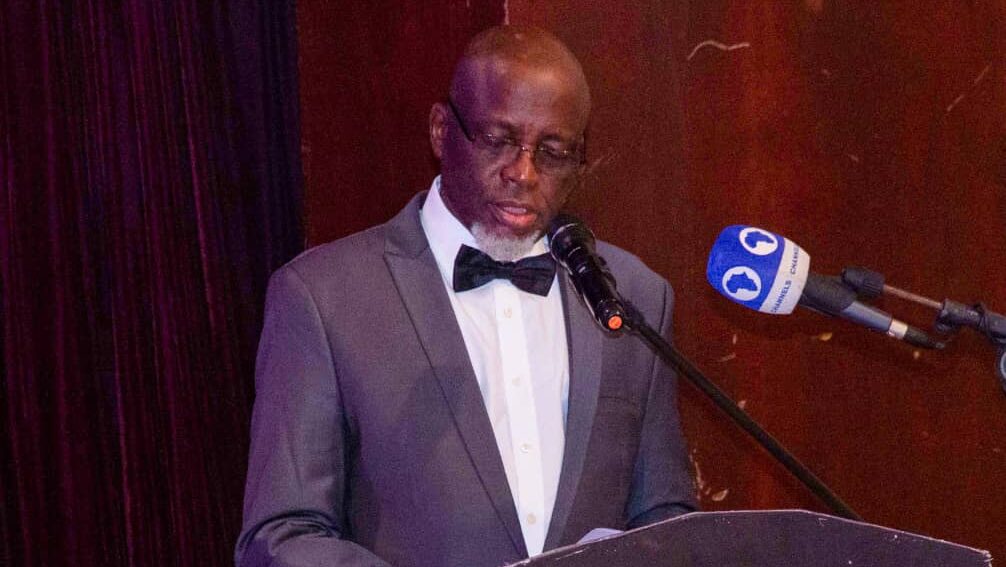Prof Ishaq Oloyede (Registrar, Joint Admission and Matriculation Board):
Oratory on Professor Jibrila Dahiru Amin, OFR

In much of Africa, the trajectory of development is often slowed down by centrifugal forces. More often than not, primordial sentiments bordering on ethnicity, region and religion often becloud people’s sense of judgement. Rather than being dispassionate and objective at all times as desirable, political expediency and associated shenanigans often rob some of our countries of quality service that would have been rendered by competent and compassionate patriots.
The history of university education in Nigeria started on a lofty note, where anyone of quality from anywhere could be a principal officer or Vice-Chancellor in any university in any part of the country. While an Igbo man was a Vice-Chancellor in the heart of Yorubaland in Ibadan, Western Nigeria, a Yorubaman was a Vice-Chancellor in Zauzau Emirate in Northern Nigeria and a Northerner was a Vice-Chancellor in Calabar in the South-South region of Nigeria.
As a matter of fact, the greatness of the first generation universities in the past decades was predicated on this remarkable commitment to putting the right pegs in the right holes without any regard for face or place. It is a compelling truism that for Africa to reclaim her lost glory and for Nigeria to advance in her quest to close the developmental gap with the Western world, the paradigm must change and a new song must be sung as it happened in the career of a stellar son of Song, Prof. Jubrilla Dahiru Amin, Officer of the Federal Republic (OFR), a man whose keen vision and purposeful mission have engendered positive change within the Nigerian university ecosystem and the public at large.
Right from the beginning of his education, J. D. Amin has always shone line a star among his peers. A baobab in the academic forest and a lion in the intellectual jungle, his winning streak peaked when he graduated in 1982 as the best student in Veterinary Pharmacology and Toxicology at Ahmadu Bello University, Zaria. Based on his high overall performance, he earned the Federal Government Scholarship that allowed him to obtain his MSc at the Royal Veterinary College, University of London and a Commonwealth Scholarship for his PhD at the same University. By dint of hard work and tenacity, he would later win a Rockefeller Fellowship and become a Rockefeller Biotechnology Career Fellow.
One of the finest contributions of the Federal Government of Nigeria to the Education sector, under the leadership of President Olusegun Obasanjo, in 2003 was the appointment of the resourceful, vibrant and young Prof. J. D. Amin as Vice-Chancellor of the University of Maiduguri, the largest and foremost university in the North East.
By proprietorship, the three classes of Universities in Nigeria are Federal, Sub-national (State) and Private. J. D. Amin transversed all the classes within the Nigeria University System, using appropriate policies and excellent performance to advocate positive change in the system and the society.
Apart from Visitorship and Chancellorship, there is no other office available to an academic in a University system, that J. D. Amin has not held (in multiple times). A lecturer, an administrator, a scholar (both in and outside Nigeria), local, national and international resource person, resident and visiting Professorship, head of Department, Dean, Deputy Vice Chancellor, Vice Chancellor, Pro-Chancellor and Chairman of Council.
As Vice-Chancellor at the prime age of 45, not only was his impact felt in Maiduguri, where the University grew qualitatively and quantitatively, the Amin effect reverberated across Nigeria and Africa at large. Apart from starting a Faculty of Medicine, additional programmes were equally created in the College of Medical Sciences and the Faculty of Science, he also enriched the Nigerian and global university system at large when he served as Secretary-General, then Chairman of the Association of Vice-Chancellors of Nigerian Universities (AVCNU) and Board member of the Association of Commonwealth Universities (ACU).
Prof. Amin’s record as a visiting professor at the National Universities Commission (NUC) is also etched on the sands of time. The Committee that he chaired processed more than 100 applications for the establishment of private universities in Nigeria and some of the universities he processed are ranked among the best in Nigeria today.
As a positive change agent, Prof. J. D. Amin has seen it all and impacted on every segment of the university system. He has been a consultant on university education to the Federal Government of Nigeria for decades and has served as a pioneer Board Member of both the College of Veterinary Surgeons of the Ministry of Agriculture and the Nigerian Research and Education Network (NgREN) of the National Universities Commission (NUC). He has invested so much in the class room and the board room to catalyse national and human capacity development in Nigeria. He is certainly the man that the cap fits as the HLF Umaru Shehu Life-time Achievement Award Winner for Consistent Advocacy for Positive Change within the University System in Nigeria.
Mr. Chairman and distinguished gentlemen, please join me to welcome our dear Professor and Vice-Chancellor Emeritus, J. D. Amin, as he steps forward to receive his flowers!

